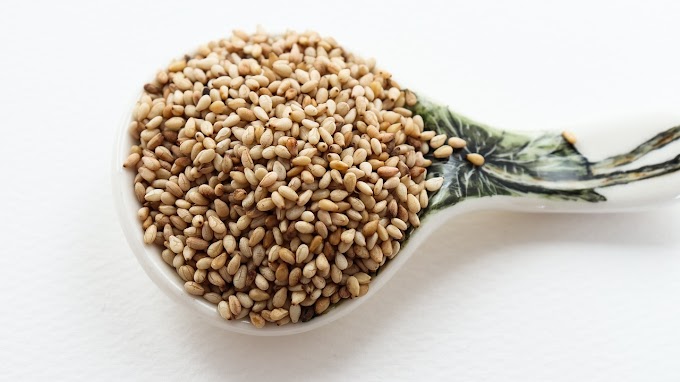Introduction
Diabetes, a chronic metabolic disorder characterized by elevated blood sugar levels, affects millions of people worldwide. One of the key pillars in managing diabetes is adopting a well-balanced and controlled diet. A diabetes-friendly diet not only helps regulate blood sugar levels but also plays a crucial role in overall health and well-being. In this comprehensive guide, we will delve into the intricacies of the diabetes diet, exploring the principles, recommended foods, meal planning, and lifestyle factors that contribute to effective diabetes management.
Diabetes and Dietary Impact
Diabetes is broadly classified into two main types: Type 1 and Type 2. In Type 1 diabetes, the body does not produce insulin, a hormone vital for glucose absorption. Type 2 diabetes, on the other hand, involves the body's inability to use insulin effectively. Regardless of the type, nutrition plays a pivotal role in managing diabetes by influencing blood sugar levels.Carbohydrates and Blood Sugar
Carbohydrates are a primary source of energy for the body, but they also have a significant impact on blood sugar levels. When consumed, carbohydrates are broken down into glucose, leading to an increase in blood sugar. For individuals with diabetes, managing carbohydrate intake becomes crucial.The Glycemic Index
The glycemic index (GI) is a scale that ranks carbohydrates based on how quickly they raise blood sugar levels. Foods with a high GI cause a rapid spike in blood sugar, while those with a low GI lead to a slower, more gradual increase. Choosing low-GI foods can help regulate blood sugar levels more effectively.Carbohydrates: Choose Wisely
a. Whole Grains: Opt for whole grains such as brown rice, quinoa, and whole wheat over refined grains. These provide more fiber, which aids in better blood sugar control.b. Legumes and Pulses: Lentils, chickpeas, and beans are excellent sources of protein and fiber, with a lower impact on blood sugar.
c. Vegetables and Fruits: Include a variety of colorful, non-starchy vegetables and moderate amounts of fruits in your diet. These provide essential vitamins, minerals, and antioxidants.
Proteins: Opt for Lean Sources
a. Lean Meats: Choose lean cuts of poultry, fish, and lean meats to minimize saturated fat intake.b. Plant-Based Proteins: Incorporate plant-based protein sources like tofu, tempeh, and legumes for variety and added fiber.
c. Dairy or Dairy Alternatives: Select low-fat or fat-free options for dairy products to control calorie and saturated fat intake.
Fats: Prioritize Healthy Fats
a. Monounsaturated and Polyunsaturated Fats: Avocado, nuts, seeds, and olive oil are rich in healthy fats that can positively impact heart health.b. Limit Saturated and Trans Fats: Reduce saturated fat intake in red meat and processed foods. Avoid trans fats often present in fried and commercially baked products.
Fiber: Emphasize High-Fiber Foods
a. Whole Fruits and Vegetables: These are rich in fiber, which aids in digestion, helps control blood sugar levels, and promotes a feeling of fullness.b. Whole Grains and Legumes: Incorporate these into your meals to boost fiber intake.

Meal Planning for Diabetes
Portion Control: Monitor portion sizes to avoid overeating, which can lead to spikes in blood sugar.
Regular Meal Times: Establish a consistent meal schedule to help regulate blood sugar levels.
Balanced Plate Method: Divide your plate into sections for proteins, carbohydrates, and vegetables, ensuring a well-balanced meal.
Snacking Smartly: Choose healthy snacks like nuts, Greek yogurt, or raw vegetables to maintain blood sugar stability between meals.
Stay Hydrated: Drink plenty of water throughout the day to stay hydrated, which is essential for overall health.
Lifestyle Factors and Diabetes Management
Beyond dietary considerations, certain lifestyle factors play a crucial role in diabetes management:Regular Physical Activity: Engage in regular exercise to improve insulin sensitivity and help manage weight. Aim for a combination of aerobic and strength-training exercises.
Stress Management: Chronic stress can affect blood sugar levels. Incorporate stress-reducing activities such as meditation, yoga, or deep breathing exercises into your routine.
Adequate Sleep: Lack of sleep can disrupt hormonal balance and impact blood sugar control. Prioritize getting sufficient, quality sleep each night.
Regular Monitoring and Medical Check-ups: Keep track of blood sugar levels and attend regular check-ups with healthcare professionals to ensure comprehensive diabetes management.
Conclusion
A diabetes-friendly diet is a powerful tool for managing blood sugar levels and promoting overall health. By focusing on the right balance of carbohydrates, proteins, and fats, and incorporating nutrient-dense, whole foods, individuals with diabetes can take proactive steps toward effective diabetes management. Additionally, lifestyle factors such as regular exercise, stress management, and sufficient sleep contribute significantly to a holistic approach to maintaining optimal health for those living with diabetes. Always consult with healthcare professionals for personalized advice and guidance tailored to individual needs and circumstances.FAQ's
Why is diet important in managing diabetes?Diet plays a crucial role in managing diabetes by influencing blood sugar levels. The right food choices can help regulate glucose levels, control weight, and reduce the risk of complications associated with diabetes.
What is the glycemic index, and how does it impact blood sugar?
What is the glycemic index, and how does it impact blood sugar?
The glycemic index (GI) is a scale that ranks carbohydrates based on their effect on blood sugar levels. Foods with a high GI cause a rapid spike in blood sugar, while those with a low GI result in a slower, more gradual increase. Choosing low-GI foods is beneficial for better blood sugar control.
Can people with diabetes eat carbohydrates?
Can people with diabetes eat carbohydrates?
Yes, individuals with diabetes can and should consume carbohydrates. However, the focus should be on choosing complex carbohydrates from whole grains, fruits, and vegetables, while monitoring portion sizes to manage blood sugar levels effectively.
How does protein intake affect diabetes?
How does protein intake affect diabetes?
Protein is an essential component of a balanced diet. Including lean sources of protein helps with satiety, weight management, and muscle health. Plant-based protein options, such as legumes and tofu, can be particularly beneficial for individuals with diabetes.
What role do fats play in a diabetes-friendly diet?
What role do fats play in a diabetes-friendly diet?
Healthy fats, such as monounsaturated and polyunsaturated fats found in avocados, nuts, and olive oil, are beneficial for heart health and can be part of a diabetes-friendly diet. However, it's important to limit saturated and trans fats, commonly found in processed and fried foods.
How can portion control be practiced effectively?
How can portion control be practiced effectively?
Portion control involves being mindful of the amount of food consumed. Using tools like smaller plates, measuring portions, and paying attention to hunger and fullness cues can help individuals with diabetes manage their calorie intake and blood sugar levels.
Are there specific foods that should be avoided by individuals with diabetes?
Are there specific foods that should be avoided by individuals with diabetes?
While there are no specific foods that must be completely avoided, individuals with diabetes should limit their intake of sugary and processed foods. Monitoring carbohydrate intake and choosing nutrient-dense, whole foods is key to managing blood sugar levels.
Is exercise important for diabetes management, and what types are recommended?
Is exercise important for diabetes management, and what types are recommended?
Yes, regular physical activity is crucial for diabetes management. Both aerobic exercises (e.g., walking, swimming) and strength-training exercises contribute to improved insulin sensitivity and overall health. Consult with healthcare professionals to determine the most suitable exercise routine.
Can stress impact blood sugar levels?
Can stress impact blood sugar levels?
Yes, chronic stress can affect blood sugar levels. Stress management techniques such as meditation, yoga, and deep breathing exercises can help individuals with diabetes maintain better control over their blood glucose levels.
How often should individuals with diabetes monitor their blood sugar levels?
How often should individuals with diabetes monitor their blood sugar levels?
The frequency of blood sugar monitoring may vary among individuals. Healthcare professionals typically provide guidance on the appropriate schedule based on factors like the type of diabetes, medication, and overall health. Regular check-ups with healthcare providers are essential for comprehensive diabetes management.
Remember that individual dietary needs can vary, so it's essential to work closely with a healthcare provider or registered dietitian to tailor a diabetes diet plan that meets your specific requirements and goals.
Remember that individual dietary needs can vary, so it's essential to work closely with a healthcare provider or registered dietitian to tailor a diabetes diet plan that meets your specific requirements and goals.







